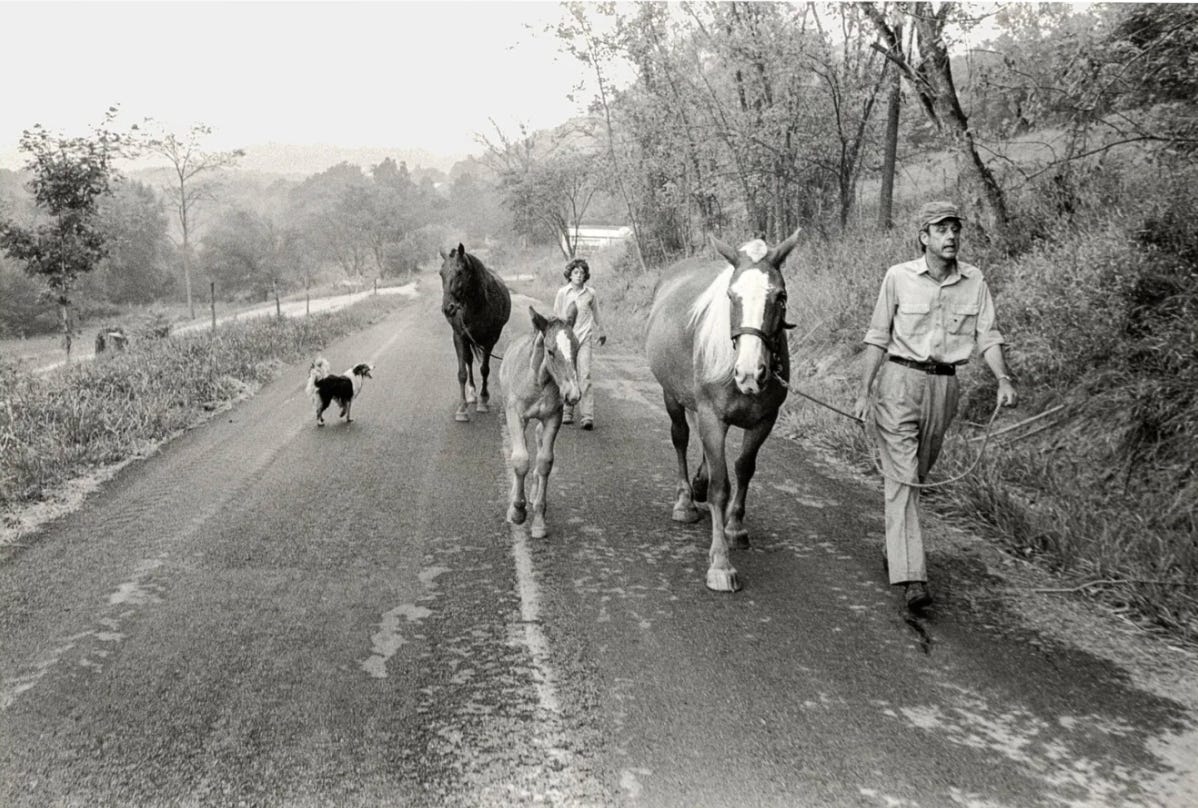Link to today’s paid subscriber call where we’ll talk about “movements” and the challenges they face in an unhealed world.
Yesterday, I shared my thoughts on the state of “medical freedom movement.”
Thanks to Neo in comments, I learned about the existence of Wendell Berry, an elder, a farmer, a defender of local solutions, and a poet. What a soul!
Here is an excerpt from his essay on “distrust in movements” that resonated with me quite a bit.
For the people who like to react to talking points (not me!!!), I am not saying that we should abandon the movements we love, I am saying that if we want to do “movements,” we’ll do better if we start with the soul, keep asking ourselves about the spiritual meaning of what we are going through, stay humble, keep in check that tyrant in the mirror, etc. Everything is energy, and the energy that we put into our actions determines a lot of the outcome.
I have had with my friend Wes Jackson a number of useful conversations about the necessity of getting out of movements—even movements that have seemed necessary and dear to us—when they have lapsed into self-righteousness and self-betrayal, as movements seem almost invariably to do. People in movements too readily learn to deny to others the rights and privileges they demand for themselves. They too easily become unable to mean their own language, as when a “peace movement” becomes violent. They often become too specialized, as if finally they cannot help taking refuge in the pinhole vision of the institutional intellectuals. They almost always fail to be radical enough, dealing finally in effects rather than causes. Or they deal with single issues or single solutions, as if to assure themselves that they will not be radical enough.
And so I must declare my dissatisfaction with movements to promote soil conservation or clean water or clean air or wilderness preservation or sustainable agriculture or community health or the welfare of children. Worthy as these and other goals may be, they cannot be achieved alone. They cannot be responsibly advocated alone. I am dissatisfied with such efforts because they are too specialized, they are not comprehensive enough, they are not radical enough, they virtually predict their own failure by implying that we can remedy or control effects while leaving causes in place. Ultimately, I think, they are insincere; they propose that the trouble is caused by other people; they would like to change policy but not behavior.
The worst danger may be that a movement will lose its language either to its own confusion about meaning and practice, or to preemption by its enemies. I remember, for example, my naive confusion at learning that it was possible for advocates of organic agriculture to look upon the “organic method” as an end in itself. To me, organic farming was attractive both as a way of conserving nature and as a strategy of survival for small farmers. Imagine my surprise in discovering that there could be huge “organic” monocultures. And so I was not too surprised by the recent attempt of the United States Department of Agriculture to appropriate the “organic” label for food irradiation, genetic engineering, and other desecrations of the corporate food economy. Once we allow our language to mean anything that anybody wants it to mean, it becomes impossible to mean what we say. When “homemade” ceases to mean neither more nor less than “made at home,” then it means anything, which is to say that it means nothing. The same decay is at work on words such as “conservation,” “sustainable,” “safe,” “natural,” “healthful,” “sanitary,” and “organic.” The use of such words now requires the most exacting control of context and the use immediately of illustrative examples.
As you see, I have good reasons for declining to name the movement I think I am a part of. I call it The Nameless Movement for Better Ways of Doing—which I hope is too long and uncute to be used as a bumper sticker. I know that movements tend to die with their names and slogans, and so I believe that this Nameless Movement needs to live on and on. I am reconciled to the likelihood that from time to time it will name itself and have slogans, but I am not going to use its slogans or call it by any of its names. After this speech, I intend to stop calling it The Nameless Movement for Better Ways of Doing, for fear it will become NMBWD and acquire a headquarters and a budget and an inventory of bumper stickers.
The essay can be found here.
A note to readers: If you are in the position to do so, I very much encourage you to become a paid subscriber or donate. I love you in any case, but it helps A LOT, and I am in a dire need to get more donations and paid subscribers while keeping my posts free. Thank you from my heart for your support!





Even when movements aren't infiltrated by Deepstate, they inevitably decay after losing their purpose. This is Parkinson's most important law. Businesses and movements and agencies usually start with a mission. After they grow large enough, they stop worrying about the mission and only want pure growth for its own sake. Their ONLY goal is increasing their budget and membership. Accomplishing the original mission would mean losing their ability to appeal for more members or funding, so they always "mysteriously" fail to accomplish the mission. Not there yet, need more money!!!
Wendell Berry is my hero!